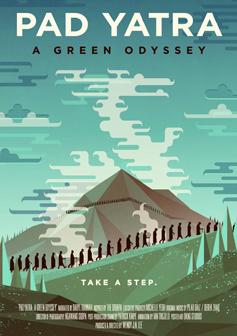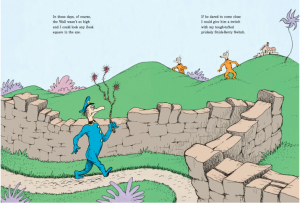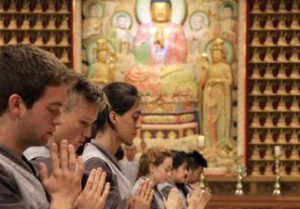Recently, I watched a documentary adventure film called ‘PAD YATRA: A Green Odyssey’. The Hong Kong premiere was shown at Hong Kong University. It was a very special event since three special guests attended the opening: His Holiness the Gyalwang Drukpa himself, Father Naylor, a Catholic priest and longtime resident of Hong Kong, and Prof. Gabriel Leung of HKU.
His Holiness the Gyalwang Drukpa had a distinct perspective on environmental issues. His Holiness’s main point is that human beings live off nature, thus nature gives us support and life. So, we need to build a better relationship with nature.
His Holiness further explains the attitude of the majority of human beings to the environment. Human beings are careless and environmental issues are forgotten. What people are concerned with is to make money for the so-called ‘good living’, but it causes environmental damage. A simple example could be cutting trees for monetary purposes (turning wood into paper for money). Also, it causes pollution that damages the environment and more.
The purpose of doing the Pad Yatra journey is that it sets up an example for the rest of the world to build our relationship to nature. What people in the journey did was picking up rubbish in Himalayas, including plastic bags and bottles. Hopefully that will help people to understand the true art of living: the art of living is not the money-making that the majority is preoccupied with, but of finding an environmentally friendly way of living. It is an important way of life indeed.
From the Pad Yatra trek, we have learned that we should respect each other. Respect should be shown not only to fellow human beings, but also to animals and nature. And so we should stop ignoring the environmental problems and stop abusing Mother Nature and ourselves.
In truth, nature is punishing us. Nature is very sick; we have made it sick for a long time. Therefore, we should raise attention and awareness of the importance of the environmental way of living. We also need to tailor the relationship between education and nature for the purpose of teaching the next generation a helpful attitude to nature. Therefore, we are promoting the idea of ‘live to love’.
I admire the idea of the Pad Yatra journey, and I believe that the damage of the environment is not a natural disaster. Indeed, it is a human-caused disaster. I think many people actually know that they are doing harm to the environment, but they just do not practice protecting and loving our environment. The Pad Yatra journey is the turning point for human beings to learn to love our natural world. Therefore, there is a high education value in this program. I think that the significance of this program is that it not only teaches people to build a good relationship to nature, but also presents a good example of how to love our ecology in practice. That is a very important teaching, as people will learn from the journey and start to love the environment in their everyday lives. For example, we could reduce our use of non-recyclable material. Also, as stated above, the journey brings out the idea of not doing things just for monetary purposes. This is an important point, as people will see other values that are much more precious in their daily life. For instance, when people buy something in the supermarket, they will think about the process by which it was made, and if it is doing harm to the environment, they will not choose not to buy it. Thus it helps to improve their quality of life.
The Pad Yatra journey is very helpful for the Himalayan environment and I hope more people will join the journey in the future.













